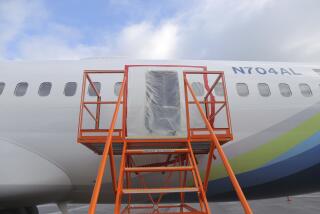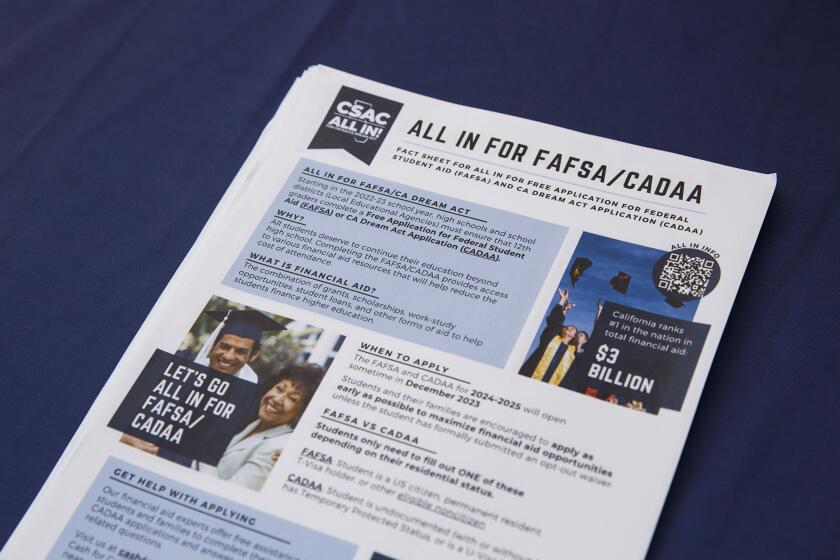Two auditors not entitled to whistleblower protection, court rules
Two auditors who helped expose violations in Boeing Co.’s financial reporting practices weren’t entitled to whistleblower protections because they leaked the information to a newspaper instead of the appropriate authorities, a federal appeals court ruled Tuesday.
A federal accounting law — the Sarbanes-Oxley Act of 2002 — protects whistleblowers in publicly traded companies only when they report the irregularities to financial regulators, Congress or their supervisors, a three-judge panel of the U.S. 9th Circuit Court of Appeals said.
The law encouraging employees to out their companies’ fraudulent or negligent practices differs from the Whistleblowers Protection Act that shields government workers from retaliation for any disclosure of wrongdoing, the court said.
The case involved two internal auditors assigned to assess Boeing’s compliance with stricter financial reporting regulations and safeguards imposed by the Sarbanes-Oxley Act. The two were fired after the Seattle Post-Intelligencer carried an article on July 17, 2007, headlined “Computer security faults put Boeing at risk.” The story said Boeing had been unable for the previous three years “to prove it can properly protect its computer systems against manipulation, theft and fraud.”
An investigation by the company’s human resources department traced the leaks to emails sent by auditors Matthew Neumann and Nicholas Tides. Boeing fired them.
Neumann and Tides sued, alleging wrongful termination, saying that the federal law shielded them from reprisals. The suit was dismissed by a Seattle federal judge last year, and the 9th Circuit panel upheld that dismissal.
The Sarbanes-Oxley Act was adopted to protect shareholders in publicly traded companies from fraud and securities violations. It included protections for whistleblowers in response to “a culture, supported by law, that discouraged employees from reporting fraudulent behavior not only to the proper authorities, such as the FBI and the SEC, but even internally,” the 9th Circuit panel said.
But Congress’ intent was to protect disclosures “only to individuals and entities with the capacity or authority to act effectively on the information provided,” the judges said.
“If, as Neumann and Tides contended, the disclosure of information to the media is protected on the ground that it may ultimately fall into the hands of a member of Congress or a federal regulator, then virtually any disclosure to any person or entity would qualify as protected whistleblower activity,” the unanimous court ruling said.
“Boeing was within its rights … to terminate Neumann and Tides for violating company policy prohibiting unauthorized disclosures of Boeing information to the media,” the 9th Circuit said.
Michael Waterstone, who teaches employment law at Loyola Law School, said it was hard to say whether the ruling would significantly deter whistleblowing in public companies.
“It certainly makes it less likely that they’ll report behavior to journalists or members of the media,” Waterstone said.
More to Read
Sign up for Essential California
The most important California stories and recommendations in your inbox every morning.
You may occasionally receive promotional content from the Los Angeles Times.











